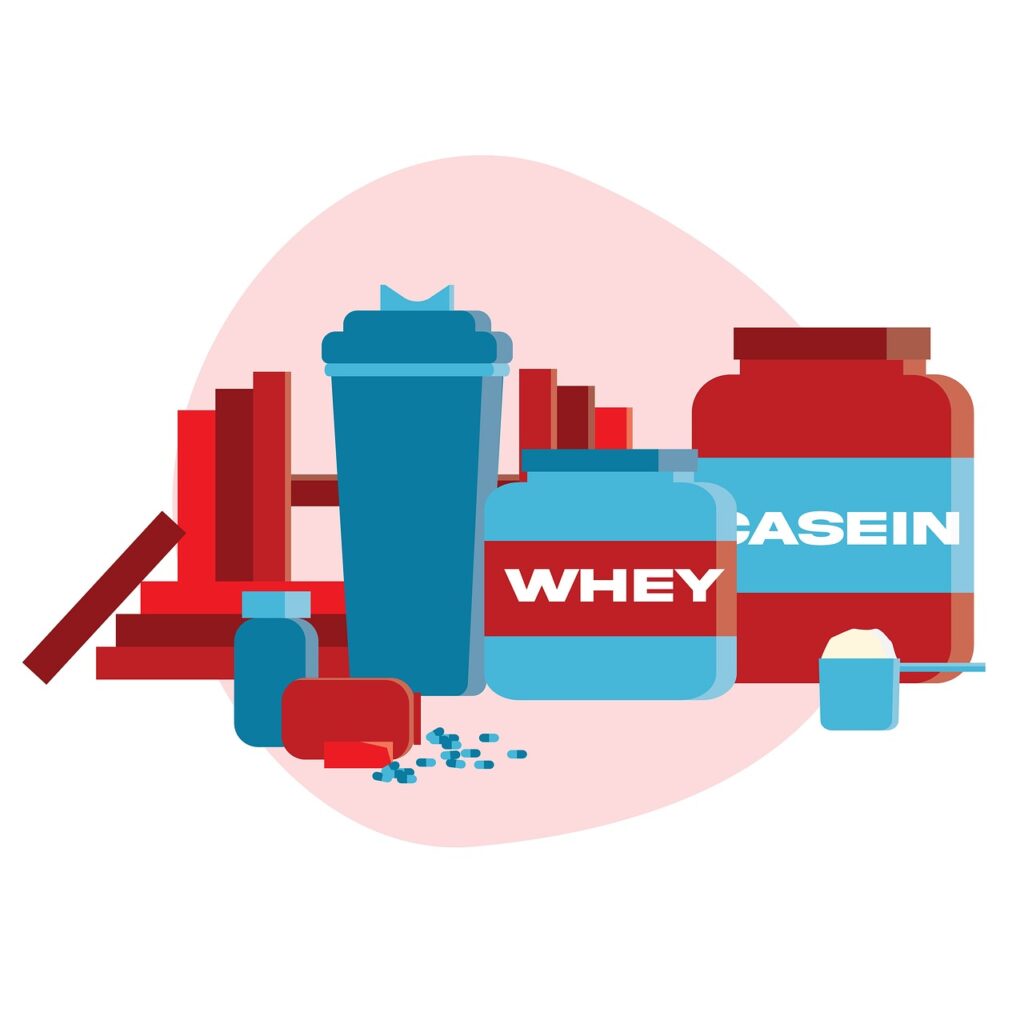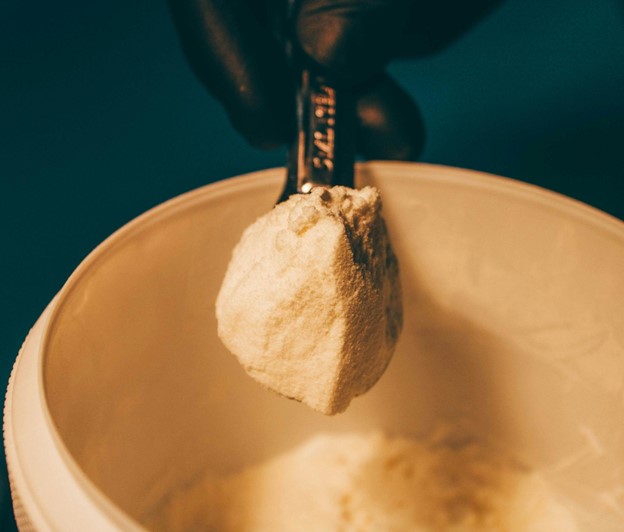What Is Protein Powder? Unraveling Its Health Benefits
Since the onset of the COVID-19 pandemic in 2020, we have become highly conscious about our health and wellness. With a surge in fitness, almost everyone has become acquainted with the word ‘protein powder’ and the world of protein powders. If you work out in the gym, a protein shake is probably something you cannot go without.
Nowadays, people use protein powders as a dietary supplement. They blended into a drink or sprinkled over a cereal. Most health food stores and online shops offer protein powders, which you can buy and are widely available. Supermarkets and health food shops provide ready-to-drink protein drinks to offer extra convenience. But can just bodybuilders benefit from protein powders, or can regular athletes use them too? What about people just looking to get healthy?
You may or may not already be consuming protein powders, but it’s essential to know that protein powders differ based on dietary preferences and different fitness goals. Let’s delve into understanding what protein powders are and the kinds of health benefits they provide.
What is Protein Powder?
Protein powder is the dried and powdered form of whey. Whey is the liquid obtained after straining milk, which is the byproduct found while manufacturing cheese. Additionally, it is derived from plants or meat. It has a low lactose content. It also consists of the nine essential amino acids along with leucine, which the body cannot produce on its own. The nine essential amino acids are essential in helping to build muscle mass.
Whey protein helps in achieving muscle strength and muscle growth due to its richness in essential amino acids which, as I mentioned, helps in increasing muscle mass.
Protein powders may differ extensively in the quantity and types of ingredients they include. Most of the plant-based protein sources lack some or the other important amino acids, whereas animal-based ones contain them.
Athletes and professional bodybuilders might consume protein powders to increase their protein intake because their workout activities require larger quantities, which everyday meals may not fulfill.
Now that we know a little more about what protein powder is, let’s look into a few types of protein powders.

Types of Protein Powders
There are various types of protein powders available on the market. Some examples of these protein powders include whey protein, casein, soy protein, plant protein, and pea protein. This list is not at all exhaustive. Whey protein is further divided into Whey Concentrate, Whey Isolate, and Whey Hydrolysate. Whey concentrate consists of low levels of fats and carbohydrates, and the percentage of protein varies between manufacturers.
Now, let us look at the concentration in whey protein powders. Low concentrations consist of 30% whey, whereas higher concentrates can consist of up to 90% whey protein. Again, it depends quite on the manufacturer.
Whey protein isolate is a more processed version of its concentrate counterpart. Since manufacturers thoroughly process isolates to filter out all the fats and lactose, isolates consist of 90% protein. They are generally more expensive, too.
Whey Hydrolysate is the hydrolyzed version of whey where the whey has undergone partial hydrolysis. Partial hydrolysis is a process that makes it easier for the body to absorb protein quickly. Its ability to improve digestibility makes it mostly found in infant food formulas and medical supplements. Casein protein is high in glutamine, an amino acid that may speed up muscle repair after exercise.
Casein originates from dairy, which makes it an inappropriate option for vegetarians and anyone with milk allergies. Since casein has a slow absorption rate, the body digests this nutrient more gradually. Thus, it’s preferable to take it at night during the long period without food. The primary advantage of casein is that its effects on the body last for a longer duration as compared to whey protein. Hence, many people use it as a meal replacement shake, such as for breakfast to fuel the rest of their day or have it for dinner.
Now that we have a fair knowledge of what whey protein is, let us have a look at a few benefits that protein powders provide us with.
Health Benefits of Protein Powder
1. Helps Promote Muscle Growth
We know that muscle mass decreases as we age. Taking supplements that are rich in whey protein can help deter muscle deterioration and help us combat diseases and illnesses that may develop due to our daily lifestyle choices. Whey protein supplements are complete proteins, they are concentrated with all the essential amino acids which are required for building strong muscles along with muscle growth and muscle repair. With the help of regular strength training and resistance training exercises, the integration of high-protein foods along with whey protein supplements can provide additional protein and nutrients that are necessary for muscle recovery and growth. This, then, can help you effectively enhance your muscle growth.
2. Helps in Managing Weight:
Since proteins are heavier to digest as compared to carbohydrates and fats, your body burns more calories in the process. This phenomenon is known as the thermic effect of protein, where the body burns 20-30% of protein calories while digesting and metabolizing the protein. A few ways protein can help promote weight loss are: it suppresses your appetite, and makes you feel less hungry, in turn reducing your calorie intake. Consuming protein-rich foods and taking protein supplements leads us to experience satiety – the feeling of being full. People who are satisfied with their food eat less and rely on snacks less often, which aids in weight management. Protein also helps boost metabolism, which helps burn more calories.
3. May help reduce inflammation:
Inflammation is part of the body’s defense mechanism. It’s a process where the body’s immune system recognizes foreign objects in the body and removes them. This begins healing. There are two types of inflammation: chronic and acute. Chronic inflammation persists longer and can cause potential health problems, such as heart disease, arthritis, and diabetes. Studies suggest that high doses of whey protein can help reduce blood levels of C-reactive protein, a key marker of inflammation in the body. As a result, reducing the risk of negative health effects on the body.
4. Enhances Post Workout Recovery:
After undergoing a rigorous workout, the muscles in the body experience wear and tear. Consuming whey protein immediately or shortly after a workout can help stimulate muscle protein synthesis. Muscle protein synthesis is the process of producing new muscle protein in the body and helps repair damaged tissues and muscle, resulting in faster muscle recovery. For this reason, athletes intake protein supplements after a workout out to enhance muscle recovery, improve muscular function, and help boost protein synthesis in the body.
5. Provides Extra Nutrients:
The presence of all essential amino acids in whey protein enables the body to synthesize protein and other important nutrients, which can be effectively absorbed by the muscles in the body. Studies indicate that athletes who engage in regular exercise may derive benefits from consuming between 2.4 g and 4.0 g of protein per kilogram of body weight each day. Additionally, your body easily digests and absorbs it from your gut compared to other types of protein powder available on the market.
Conclusion
We hope this article has helped you understand what protein powder is, what are its different types, and the benefits they provide us with. Not only those who exercise daily can consume protein powders but also non-fitness fanatics and individuals who simply want to maintain their bodies. It can help maintain and tone your body’s muscles effectively, with the addition of a weightlifting program, and also provides us with a variety of health benefits. These health benefits include reducing inflammation, promoting muscle growth, and helping to manage our weight.
Article by Joseph George
Reviewed and edited by John Poehler and Steve Poehler
Joseph George is an SEO Content Researcher. He enjoys writing about his experiences and especially likes to write about staying healthy. Joseph loves exercising and keeping his body fit. He also enjoys reading books and blogs on different topics. Besides health, he writes about real estate, vertical farming, e-commerce marketing, digital marketing, and more.







